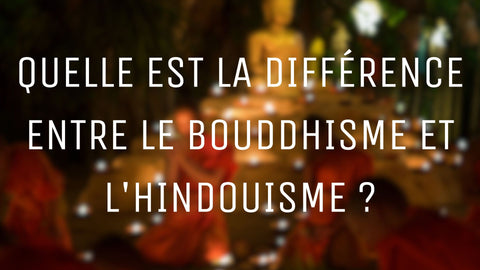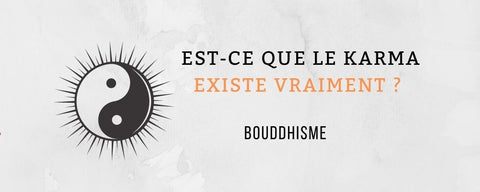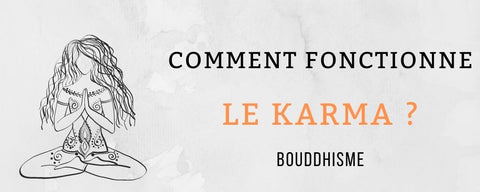
Do the Buddhists believe in God
of reading
Buddhism is one of the most popular religions in the world, with more than 300 million adepts. Although it is sometimes qualified as Orientale, Buddhism is gaining popularity and influence in the West.
This religion differs from other religions of the world in that it incorporates elements of Hinduism, such as Karma (ethical teachings based on the cause and effect), Maya (illusory nature of worlds) and Samsara ( cycle of rebirths). Buddhists seek to reach illumination for themselves.
Siddhartha Gautama, the founder of Buddhism, was born in an Indian royal family around 600 BC. According to the legend, he grew up in comfort and had few links with the outside world. His parents tried to keep him away from religion so that he is not influenced and so that he does not know sadness or suffering. But his peace of mind was quickly shaken: he saw an old man, a patient and a corpse.
To read also: Buddhism, monotheistic religion or polytheistic?

Its fourth vision was that of a peaceful ascetic monk who had renounced comfort and luxury. After witnessing his inner peace, he was inspired to seek enlightenment by austerity. To make progress towards enlightenment by deprivation, he renounced his easy lifestyle. He had an ability for rigorous automating and deep meditation. Among his people, he was a popular figure.
He finally managed to reach the illumination when he sat under a fig tree and eaten only rice, after which he meditated until he became illuminated or died in his quest. Despite his efforts and temptations, the next morning he had reached enlightenment. Following this success, he began teaching other monks who were already under his influence. Five of his disciples became his first students.
What was Gautama's discovery? He acknowledged that Nirvana is in the "path of the environment", nor in luxury or penance, and he also discovered what we called the "four noble truths" (see below).
To do this, you must follow the "noble path octuple", which includes:
- A just vision
- Good intentions
- Good deeds
- Good life (existence in monasticism)
- The most dangerous element of yoga is the misuse of effort, which can tip your practice with a mental and physical exercise to an emotional and spiritual battle. When you make goal-oriented efforts (good energies)
- Concentrate on your breathing and the present moment for 30 seconds to a minute. Obviously, this is only appropriate if you are ready to devote time to meditation!
- Is it easy or difficult to stay focused?
Tripitaka, or "three baskets", is the Buddhist doctrine.
The notion of God in Buddhism is multiple and complex, just like that of Hinduism. Reincarnation, Karma, Maya and a pantheistic vision of the world are common elements to both religions. Buddhism also includes many pantheon of gods and superior beings, although it shares many features with Hinduism. The perception of God in Buddhism can be difficult to define in a manner similar to that of Hinduism.
To read also: what are the beliefs of Buddhism

Some Buddhist sects can be qualified by atheists, pantheists or theists, but classical Buddhism does not commit to the subject of a supreme being and is therefore considered atheist.
Contemporary Buddhism, meanwhile, is very varied. It can be divided into two branches: the theravada (small vehicle), which reserves the ultimate illumination and the Nirvana to the monks, and the Mahayana (large vehicle), which declares that this objective is also accessible to the laity. The Theravada is the monastic form of Buddhism that reserves salvation to the monks, while the Mahayana says the laity can also reach Nirvana.
Tendai and Vajrayana are two branches of Buddhism that followed the way of Mahayana. Nichiren, Shingon, Pure Earth, Zen and Ryobu are just some of the many ramifications. If you have been content to study traditional historical Buddhism, you can not say that you deeply know a particular Buddhist school.
The Buddha has never been considered by him as a divinity or any other divine being, but as "the one who shows the way to others" some of his disciples have made him a god after his death, but not all.

According to Buddhism, sin is caused by ignorance, and although it is considered a "moral fault", good and evil are defined in an amoral context. Karma is considered the natural balance of nature and has no personal application. As nature is not moral, karma is not a moral code and sin is not necessarily a crime.
It follows that, according to the Buddhist doctrine, our mistakes are not moral faults since it is, ultimately, errors committed against impersonal forces and not individual persons. These consequences are catastrophic.
According to Buddhists, sin is an error of orientation, rather than a transgression or a violation of the Holiness of God. This design of sin does not correspond to the universal moral sense that all humans are held responsible for their offenses towards a holy God.
The Buddhist Design of Crime as an impersonal and repairable error opposes the Christian teaching of human depravity, which is a fundamental doctrine. According to the Bible, the transgression of man has eternal and endless consequences. In Buddhism, we do not need a savior to save us from the sentence of our transgressions.
For Christians, the only way to be saved from eternal damnation is to go through Jesus. For Buddhists, the only chance to achieve enlightenment and ultimate goal, Nirvana, lies in the practice of a moral life while using superior beings by meditation. They will probably have to repeat lives until they repaid their karmic debt.
To read too: What is the name of the God of Buddhists?

For authentic Buddhists, their religion is a moral and ethical system that boils down to a life of self-denial. In Buddhism, reality is impersonal and non-relational, so it can not be loving. One loses itself not only because God is judged illusory, but also because we reduce the sin to a mistake without consequence in order to reject the material world as māyī (illusion). The personality herself becomes an illusion.
It is said that the question of how the world was born and who or what created it, the Buddha remained silent because, in Buddhism, there is neither start nor end, but only an endless cycle births and deaths. We can then legitimately question: What a being would have put here for us to suffer and endured as much? What is the meaning of all this and why to bother to live?
We can not serve two masters - neither the gods nor our family or nation. And we can not find how to love everyone at the same time in this world.
The purpose of Buddhism is Nirvana, that religion defines as a pure state of life that can be achieved by any individual. Nirvana challenges any rational description and logical order. It can not therefore be taught; It must rather be experienced.
Although Christian theology has stressed the importance of paradise since the ancient times, the teachings of Jesus on paradise are clear: he informed us that our physical bodies will die, but that our spirits will go to God to the sky (Marc 12. ) The Buddha taught that we do not have a soul because the person or ego is a chimera. For Buddhists, there is no heavenly Father who sent his son to earth to die for our souls and open the path of his glory. Finally, here is why Buddhism must be rejected.



















